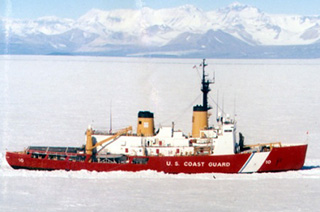The U.S. faces “critical credibility gaps” in the opening Arctic seaways under present Coast Guard plans for building new icebreakers, with new vessels not likely to arrive until 2024 or 2025, the chairman of a Congressional Coast Guard subcommittee warns.
In a March 23 letter to Coast Guard Commandant Adm. Paul Zukunft, Rep. Duncan Hunter, R-Calif., questioned whether the Coast Guard’s 2017 budget request for $150 million to fund icebreaker planning, and timeline for construction to begin in 2020, is enough.
“It is clear countries like Russia, with a large fleet of heavy icebreakers, understand the importance of a strong presence in the Polar Regions. Regrettably, the Coast Guard’s current plan of action has a high likelihood of leaving our country without this important capability for at least several years,” Hunter wrote.
“Even at the present time, our nation is one engine casualty away from being unable to fulfill our responsibilities and project U.S. power,” Hunter added.
Hunter is chairman of the House Subcommittee on Coast Guard and Marine Transportation, which has been holding hearings on the Coast Guard’s icebreaker needs. The service is down to two icebreakers – the heavy 399’x83’x31’ Polar Star and the medium 420’x82’x29’ Healy. Committee members have noted the contrast, particularly with Russia’s fleet of 40 ice capable vessels, and plans to commission 11 more in anticipation of growing maritime traffic as Arctic sea ice retreats.
In the letter Hunter asks for a detailed timeline and cost breakdown for planning, design and construction of the new heavy icebreaker, including year-by-year expenditures. In the meantime, Hunter is asking if the Coast Guard is planning to further extend the service life of the Polar Star, which underwent a refurbishing in 2012 to extend service on the already 40-year-old ship to at least 2019.
“If so, what are the estimated costs? If not, how does the Coast Guard plan to address to two to five year capability gap?” Hunter wrote.
“It is my goal to ensure that a heavy icebreaker is acquired as efficiently and quickly as possible — and I hope the Coast Guard shares that goal,” Hunter concluded. “Leaving our country exposed to critical credibility gaps is unacceptable. Before making a final judgment on the Coast Guard’s heavy icebreaker acquisition strategy and budget request, I will await your response to this letter.”





